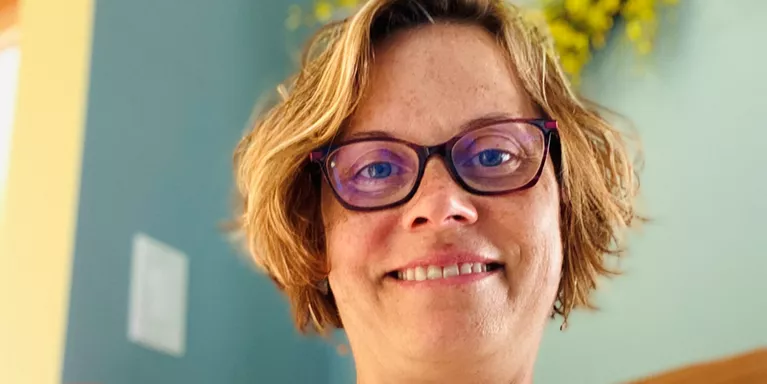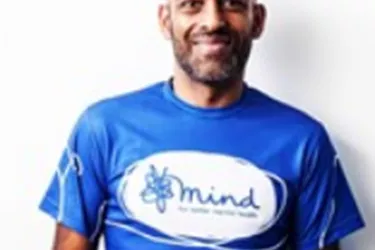Managing bipolar disorder and a PhD
Jeff blogs about his experience of bipolar disorder while at university doing a PhD.
I was awarded my PhD in December 2015. My family came to the ceremony and it was one of the proudest days of my life. It had taken a lot longer though than PhDs are supposed to. This is because I have bipolar disorder.
I was diagnosed in May 2009. I had become very ill very quickly. The symptoms I had meant that they were able to make the diagnosis in less than a week. I was lucky getting such a quick diagnosis because I could then start getting treatment. I’ve read that being diagnosed with bipolar can take many years. I was still really unwell for a long time though.
"When I am down it feels like there is a crushing weight and sometimes I feel unable to do anything at all."
However, a year later I felt ready to take on the challenge of a PhD. I had been well for a while and it never crossed my mind that there would be any problems. I had always wanted to do one, so when the opportunity came about I took it. It had been a long time since my MSc. I think I had forgotten that academic study is much less structured than work. For example, there are no real set hours. This is particularly true of PhDs where you are expected to produce your own research plan.
Having bipolar disorder means that I have to be careful about getting over enthusiastic about something. However, this soon happened with the PhD. I would wake up in the night after only an hour or two of sleep and just want to work. I used to get so much done. However, I would soon get distracted by other things. When I’m getting ill, I start making connections between things that other people see as coincidences. These theories are a sure sign that I’m beginning to get ill.
"Making the university aware of my illness was another really important factor in getting the PhD."
I have a care plan with my doctor now. It includes the agreement that if I have three nights of disturbed sleep in a row I go and see him in the morning. We then decide the best thing to do but usually this involves taking additional medication.
Medication has actually been one of my biggest issues. Initially I was prescribed medication only when I was ill. These anti-psychotics although effective, have the unfortunate side effect for me that they make me really tired. I just cannot think straight when I’m on them. It meant that my PhD came to a virtual stand-still each time I started to get unwell. However, I kept raising the issue with the health care professionals that I was seeing. My consultant changed and the new one agreed to try a different approach. I now take two types of mood stabiliser every day. I still take the anti-psychotics when I get unwell but this is much less frequently than before. I know that some people can manage their illness without daily medication. I can’t. I genuinely believe that without this change I would not have finished my PhD.
Making the university aware of my illness was another really important factor in getting the PhD. To be honest I was forced into telling them. You have a maximum amount of time to complete a PhD. At one time I was so ill that it was obvious that I would not be able to do any studying for quite a while. I was really worried that this would stop me meeting the deadline. Of course this worry made me feel more and more down. The consultant at the hospital was really great though and wrote the perfect letter to the university explaining the situation. The university in turn were fantastic about everything. In particular they made sure that I had the extra time I needed to complete the PhD.
I find being down so much harder than being up. When I am up I just feel great and I feel like I can achieve anything. When I am down it feels like there is a crushing weight and sometimes I feel unable to do anything at all. I was told that the best way to cope with that is to set myself tiny little tasks. This really helps as at least I could feel like I had achieved something.
"Getting any kind of qualification is an achievement. However, for me, doing so while managing bipolar disorder felt like much more of one."
I am very wary about who I discuss my illness with. Part of this is because I can suffer from terrible paranoia. People also find it hard to understand how you can genuinely believe you are someone else or have special powers when you are really ‘high’, or just how ‘low’ you can feel. It has helped me a lot to discuss my feelings with mental health professionals. However, they aren’t always there. Sometimes I rang the telephone help line they gave me the number for. Just being able to talk to someone in confidence at any time of day or night can help enormously.
Getting any kind of qualification is an achievement. However, for me, doing so while managing bipolar disorder felt like much more of one. I kept going because I wanted to prove to myself I could succeed despite having bipolar disorder. I know though I could not have got the PhD without the support of a lot of people. I will always be grateful for this.


Information and support
When you’re living with a mental health problem, or supporting someone who is, having access to the right information - about a condition, treatment options, or practical issues - is vital. Visit our information pages to find out more.
Share your story with others
Blogs and stories can show that people with mental health problems are cared about, understood and listened to. We can use it to challenge the status quo and change attitudes.

















